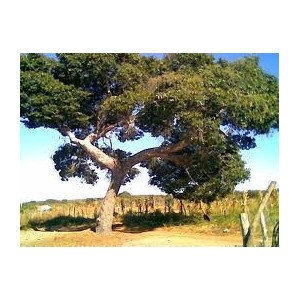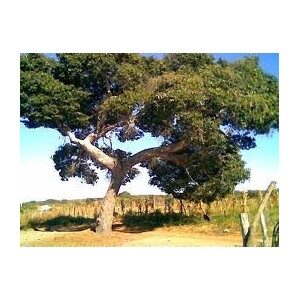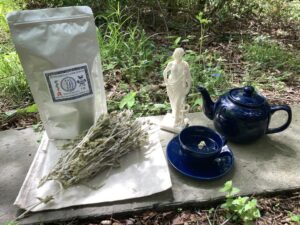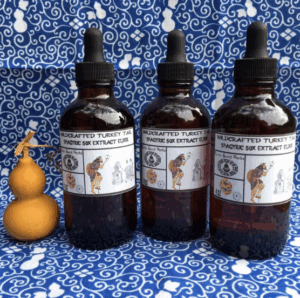Jatoba (Hymenaea courbaril) is a tree indigenous to the Amazon rainforest and Central America used extensively for therapeutic purposes by traditional medicine practitioners for many problems, including diarrhea, hepatitis, bronchitis, and coughs. This is the best and safest herbal tincture for yeast and molds and fungal infections.
Many of Jatoba’s benefits are related to its toxicity against harmful organisms, including yeast, viruses, fungi and bacteria and most of its beneficial compounds are located within its bark. Not only does jatoba present itself as fierce opposition to harmful organisms, but also to swelling, as jatoba contains a wide variety of active compounds and phytochemicals that have demonstrated an ability to fight redness and irritation. Traditional preparation is a tea prepared from the bark or a tincture which can be used for a variety of health conditions, including the candida fungus. Antibacterial, anti-fungal, anti-fatigue, anti-inflammatory, antioxidant, anti-spasmodic, astringent, decongestant, diuretic, expectorant, hepato-protective, laxative, stimulant, stomachic, tonic vermifuge.
The presence of phenolic compounds like flavonoids and tannins may be the reason for the antimicrobial activity; especially against E.coli, Psuedomonas and Staphylococcus. Jatoba bark has shown excellent results with acute- and chronic cystitis (inflammation of the urinary bladder) and prostatitis (inflammation of the prostate). These chronic conditions more often are fungal in nature rather than bacterial.
The use of antibiotics to treat these inflammations may kill off friendly bacteria which live off the fungi. This increases the chances of fungal problems and/or encourages fungal growth which can make the condition chronic. Tonic, energizer (is a natural stimulant), anti-fungal, decongestant.
Jatoba is effective as an herbal tincture or medicinal tea in the treatment of a wide range of respiratory ailments such as asthma, laryngitis, bronchitis, lung weakness and chronic coughs.
Effective in the treatment of yeast- and fungal infections, cystitis, bladder infections, arthritis, prostatitis, bursitis and hemorrhage.
The resin from the tree bark is also used in Surinam traditional medicine for cough and bronchitis, and an herbal tea from the bark is used for stomach problems as well as foot – and nail fungus. Tincture: 1 – 4 ml. daily (1 – 4 full droppers)
TRIBAL AND HERBAL MEDICINE USES
In the Amazon, jatobá’s aromatic copal resin is dug up from the base of the tree and burned as incense, used in the manufacture of varnishes, used as a glaze for pottery, and is employed medicinally. Indians in the Amazon have long used the resin in magic rituals, love potions and in wedding ceremonies. Although the name Hymenaea is derived from Hymen, the Greek God of marriage, it refers to the green leaflets that always occur in matching pairs, rather than the Indian’s use of it in marriage ceremonies. Jatobá’s bark and leaves also have an ancient history of use with the indigenous tribes of the rainforest. The bark of the tree is macerated by the Karaja Indians in Peru and Creole people in Guyana to treat diarrhea. In Ka’apor ethnobotany, jatobá bark is taken orally to stop excessive menstrual discharge, applied to wounded or sore eyes, and used to expel intestinal worms and parasites. The bark is used in the Peruvian Amazon for cystitis, hepatitis, prostatitis, and coughs. In the Brazilian Amazon, the resin is used for coughs and bronchitis, and a bark tea is used for stomach problems as well as foot and nail fungus.
With its long history of indigenous use, it would follow that jatobá has a long history of use in herbal medicine systems throughout South America. It was first recorded in Brazilian herbal medicine in 1930. The bark was described by Dr. J. Monteiro Silva who recommended it for diarrhea, dysentery, general fatigue, intestinal gas, dyspepsia, hematuria, bladder problems, and hemoptysis (coughing blood from the lungs). The resin was recommended for all types of upper respiratory and cardiopulmonary problems. In the mid-1960s an alcohol bark extract called Vinho de Jatobá was widely sold throughout Brazil as a tonic and fortificant, for energy, and for numerous other disorders.
In traditional medicine in Panama, the fruit is used to treat mouth ulcers and the leaves and wood are used for diabetes. In the United States, jatobá is used as a natural energy tonic, for such respiratory ailments as asthma, laryngitis, and bronchitis, as a douche for yeast infections and it is taken internally as a decongestant and for systemic candida in the stomach and intestines. It is also used in the treatment of hemorrhages, bursitis, bladder infections, arthritis, prostatitis, yeast and fungal infections, cystitis, and is applied topically for skin and nail fungus.*
*The above statements have not been evaluated by the Food and Drug administration. This product is not intended to diagnose, treat, cure, or prevent any disease.






 Adding...
Adding...